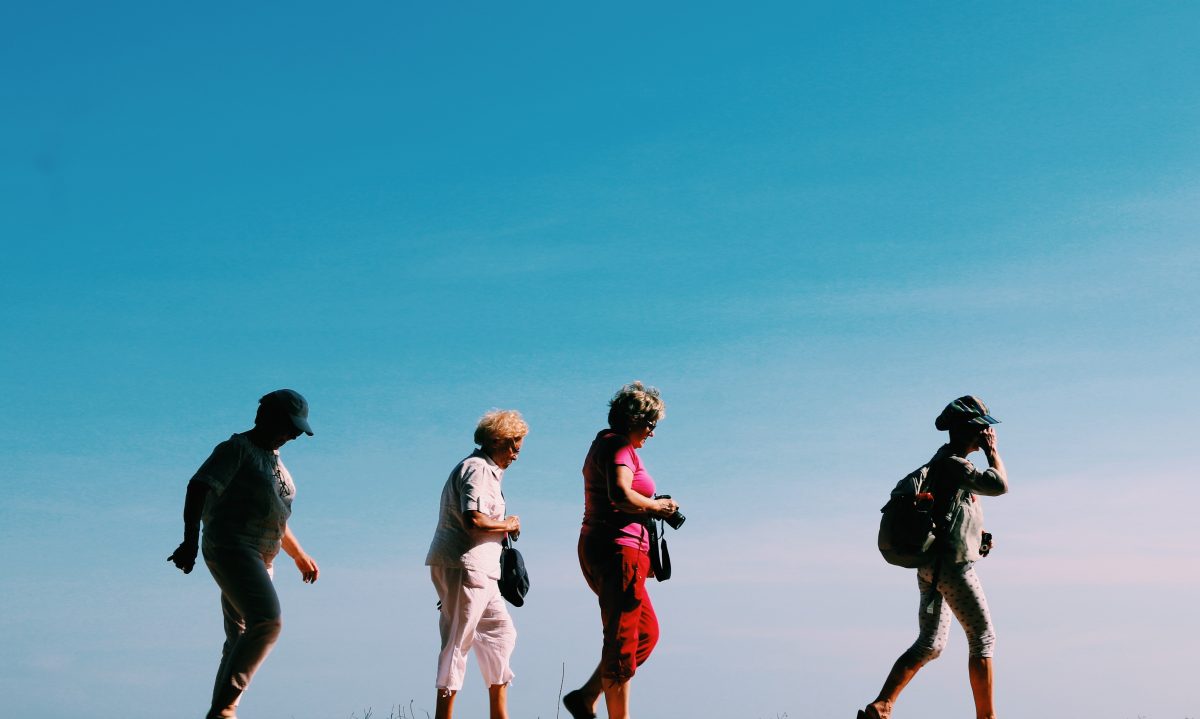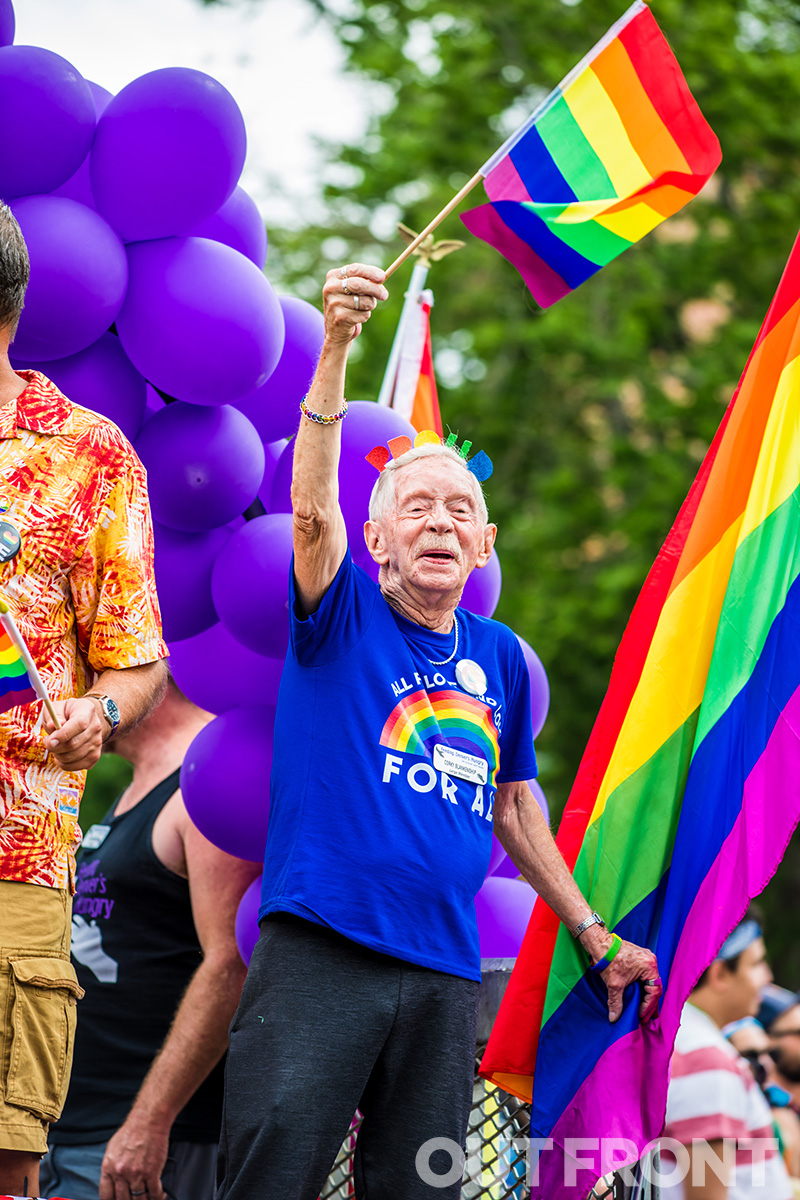Next Fifty is Taking Care of Our Elders

Addison Herron-Wheeler is OUT FRONT's co-publisher and editor-in-chief and friend…
There may be nothing else on this earth that queer people resist more than growing old. And while clichés about gay men lying about their age and queer folks living forever can be funny, there’s a very real reason we’re afraid of aging. There aren’t always people there to take care of us. That’s where the Next Fifty Initiative comes in.
“I’m particularly interested in helping LGBTQ individuals, and particularly the older population, just given the disparities they face,” said Carey Candrian, PhD, co-director of the Next Fifty Initiative with Dr. Hillary Lum. “Older LGBTQ individuals are more likely to go back into the closet, and many are living in poverty and less likely to have kids, be married, or have caregivers. They are more likely to live alone and be lonely.”
The Next Fifty Initiative is a grant initiative that helps with advanced care planning for LGBTQ and other hi-risk elders. The Denver Hospice and the CU School of Medicine are working together under this umbrella to try and make sure queer elders have the help they need.
They realize that there is distress within the elder queer community that there are not enough people who can help, and there is a reluctance to seek care because of stigma. Advanced care planning is essentially the process of making sure that things are in place for folks once they reach their later years. It’s not just for older folks, either. Advanced care planning can be important for young and middle-aged people so they can plan what life will be like later on.
Still, that’s easier said than done for a lot of folks in the community who don’t have the resources to be taken care of. So, Next Fifty wants to use the young folks of today to help care of our queer elders.
“We are using an untapped resource in the community—volunteers, particularly more from LGBT community organizations,” Candrian added.
“They go through a 16-hour free training, certification, get skills in advanced care planning, get skills in communication. Then, the goal is for them to go back out and talk to their peers and their friends and to sort of start the change on a community level,” Candrian said.
Ultimately, the idea is to get everyone who is a part of the queer community to come in and get trained, not only those who want to work in elder care or volunteer. That way, people will be aware of what they could face in their own life and will be able to help and support those around them.
While this is in no way supposed to replace healthcare professionals, sometimes having someone you can relate to can be the most important form of support out there. The main focus of the people who go through this training is not to be able to provide nursing care to elders, but to essentially act as mentors to older folks. That can help with big decisions and life planning and provide companionship.
“I think the lack of family has been the most glaring barrier to LGBTQ senior care,” Candrian said. “There is an assumption that everyone just sort of has this incredible network of people.
“Some people don’t have anyone there to be their medical decision maker, and that’s heartbreaking. No one should have to go through this alone.”
To learn more about Next Fifty, visit them online at next50initiative.org.
What's Your Reaction?
Addison Herron-Wheeler is OUT FRONT's co-publisher and editor-in-chief and friend to dogs everywhere. She enjoys long walks in the darkness away from any sources of sunlight, rainy days, and painfully dry comedy. She also covers cannabis and heavy metal, and is author of Wicked Woman: Women in Metal from the 1960s to Now and Respirator, a short story collection.










